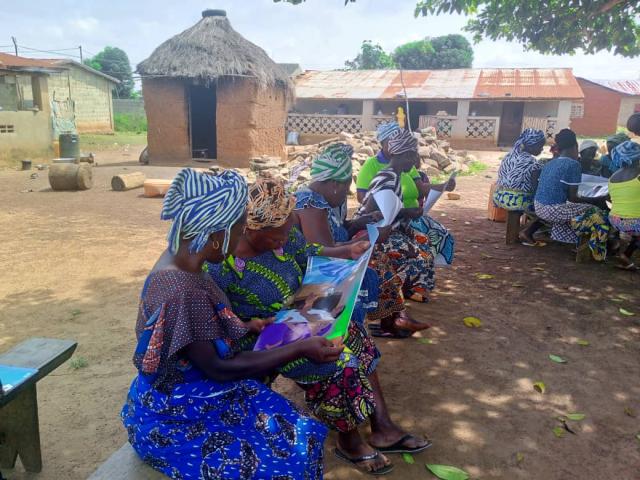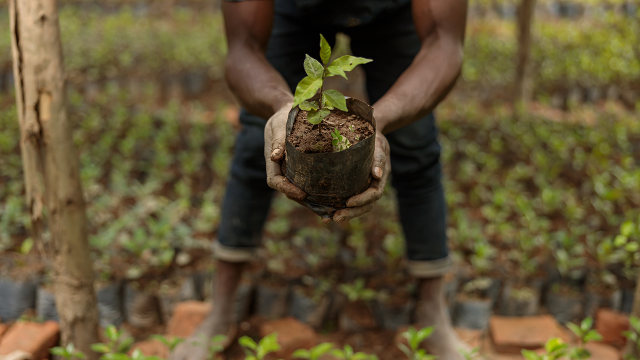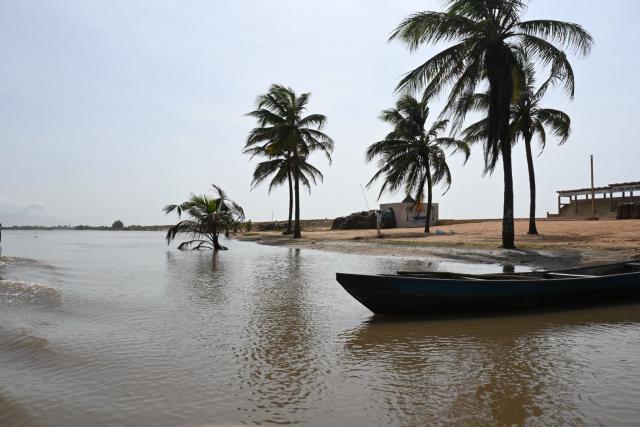In Benin, LuxDev supports digital transformation, vocational training, and inclusive finance to drive sustainable development.
LuxDev in Benin
The partnership between Luxembourg and Benin was formalised in December 2022 with the signing of a general cooperation agreement, followed by the establishment of LuxDev’s country office in February 2023.
Since then, Luxembourg has been supporting Benin’s development, focusing on three key areas aligned with national priorities: vocational training, digitalisation, and inclusive finance.
LuxDev works closely with government ministries, agencies, NGOs, and other stakeholders to ensure ownership, efficiency, and long-term impact of its programmes.

Challenges in Benin: financial inclusion, employment, and digital transformation
Benin, classified as a lower-middle-income country, has made significant progress in various sectors. However, substantial efforts are still needed to reduce poverty levels.
Despite technological advancements, a large portion of the population remains excluded from formal financial services. Access to credit – especially for small and medium-sized enterprises and rural communities – is hindered by limited banking access, stringent collateral requirements, and a lack of tailored financial products.
Youth unemployment remains an urgent concern for public authorities. The gap between graduate skills and labour market needs slows the creation of competitive and sustainable jobs. Additionally, a lack of infrastructure, modern equipment, and strong partnerships with businesses further exacerbates the problem.
Furthermore, Benin faces obstacles in the digital transformation of both the public sector and small and medium-sized enterprises, as well as challenges related to cybersecurity. These limitations reduce the country’s appeal as an investment destination, undermine trust in online services, and hinder local businesses’ competitiveness in global markets.

Le chômage des jeunes constitue également une préoccupation importante des pouvoirs publics. Le faible alignement entre les compétences des diplômés et les besoins du marché freine la création d’emplois décents et compétitifs. À cela s’ajoute le manque d’infrastructures, d’équipements modernes et de partenariats solides avec les entreprises.
Par ailleurs, le pays est confronté à des difficultés de transformation numérique du secteur public et des petites et moyennes entreprises, ainsi qu’à des problèmes de cybersécurité. Ces manquements pèsent sur l’attractivité de la destination Bénin, la confiance des citoyens et des entreprises envers les services en ligne, ainsi que la compétitivité des entreprises locales sur le marché international.

©Rwanda Green Fund
Our activities in Benin
To address these challenges, LuxDev implements targeted programmes aimed at supporting digital transformation, enhancing vocational training, and promoting financial inclusion.
-

Promoting financial inclusion
We collaborate with public and private actors to develop financial infrastructures, enhance financial and digital literacy, and improve regulatory frameworks for financial products, fintech solutions, and electronic payments.
-

Strengthening vocational training
We support skills development in tourism, hospitality, and food services. We support collaboration between public and private stakeholders, help bridge financial gaps to provide high-quality training, enhance pedagogical innovation, and align graduate competencies with labour market demands. Additionally, we strengthen vocational training programmes tailored to agricultural development, improving young people’s employability and socio-professional integration.
-

Driving digital transformation
Our initiatives focus on strengthening cybersecurity, improving digital skills, and facilitating access to financing for tech startups.
Key figures in Benin
-
EUR 7,320,995
disbursed in Benin in 2025
Distribution of disbursements by sector in 2025
Evolution of activities in Benin
Projects in Benin
-

In execution Benin
Support to civil society in Benin
Governance
Support to civil society in Benin -

In execution Benin
École des métiers du tourisme, de l’hôtellerie et de la restauration
Education, vocational training and employment
École des métiers du tourisme, de l’hôtellerie et de la restauration -

In execution Benin
Agricultural training and professional integration in agricultural development pole no. 4
Education, vocational training and employment
Agricultural training and professional integration in agricultural development pole no. 4 -

In execution Benin
Digital development (BeDigital)
Digitalisation and ICT
Digital development (BeDigital) -

In execution Benin
Support for the agroecological transition and the implementation of sustainable food systems in the ...
Agriculture, forestry and fishery
Support for the agroecological transition and the implementation of sustainable food systems in the Mono Biosphere Reserve (Delta Mono) -

In execution Benin
Inclusive and innovative finance
Impact finance
Inclusive and innovative finance -

In execution Benin
Support programme to agricultural and rural training (ProFAR 2)
Education, vocational training and employment
Support programme to agricultural and rural training (ProFAR 2)








